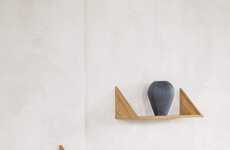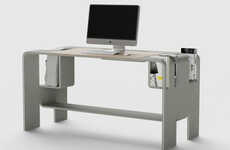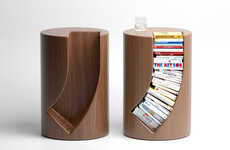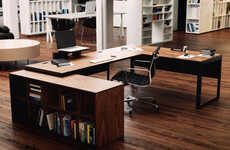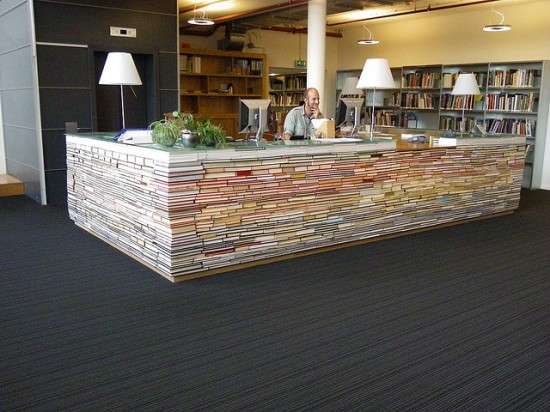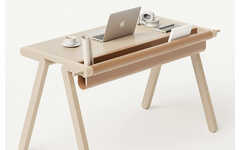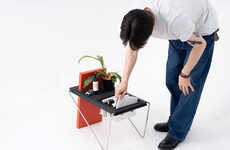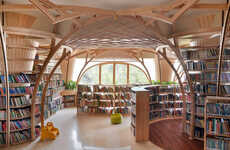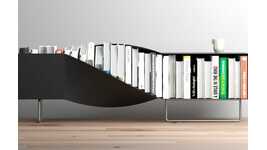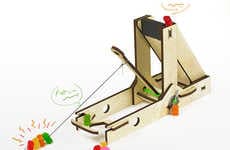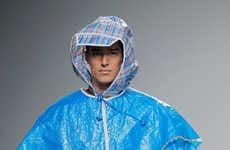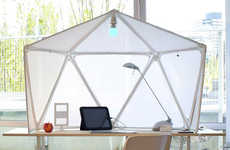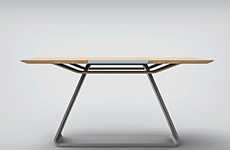
Tu Delft Architecture Bibliotheek Turns the Tables on Intelligent Design
References: recyclart.org & gizfactory
Tu Delft Architecture Bibliotheek is one library that isn't afraid to get a little bit creative with its book-stacking, and its truly funky information desk is a perfect example of that.
Consisting of hundreds of stacked multicolored books, the truly massive desk is both extremely cool and extremely sturdy. As far as finding a creative way to re-purpose old or obsolete textbooks go, this Tu Delft Architecture Bibliotheek information desk is top-notch.
Implications - Designers are looking for more ways to appeal to the masses by taking different approaches to their designs. Modern techniques and materials are tiring and consumers want to see something unusual and eye-catching instead of conventional. The use of different materials may be the best approach to establishing cutting-edge designs that are still familiar.
Consisting of hundreds of stacked multicolored books, the truly massive desk is both extremely cool and extremely sturdy. As far as finding a creative way to re-purpose old or obsolete textbooks go, this Tu Delft Architecture Bibliotheek information desk is top-notch.
Implications - Designers are looking for more ways to appeal to the masses by taking different approaches to their designs. Modern techniques and materials are tiring and consumers want to see something unusual and eye-catching instead of conventional. The use of different materials may be the best approach to establishing cutting-edge designs that are still familiar.
Trend Themes
1. Creative Re-purposing - There is an increasing trend for designers to re-purpose old or obsolete materials and give them new life by creating unique designs that appeal to consumers.
2. Unconventional Design - Designers are seeking to differentiate themselves by creating eye-catching designs that incorporate unusual materials and techniques to stand out in a crowded market.
3. Sustainability in Design - There is a growing trend towards using sustainable materials and techniques in design to reduce waste and minimize environmental impact.
Industry Implications
1. Furniture Design - Designers in the furniture industry can take advantage of the trend towards creative re-purposing to create unique and sustainable pieces that will appeal to consumers.
2. Interior Design - Interior designers can incorporate unconventional materials and techniques into their designs to create unique and eye-catching spaces that stand out from the competition.
3. Architecture - Architects can use sustainable materials and techniques in their designs to reduce the environmental impact of construction while also creating innovative and visually appealing structures.
5
Score
Popularity
Activity
Freshness


